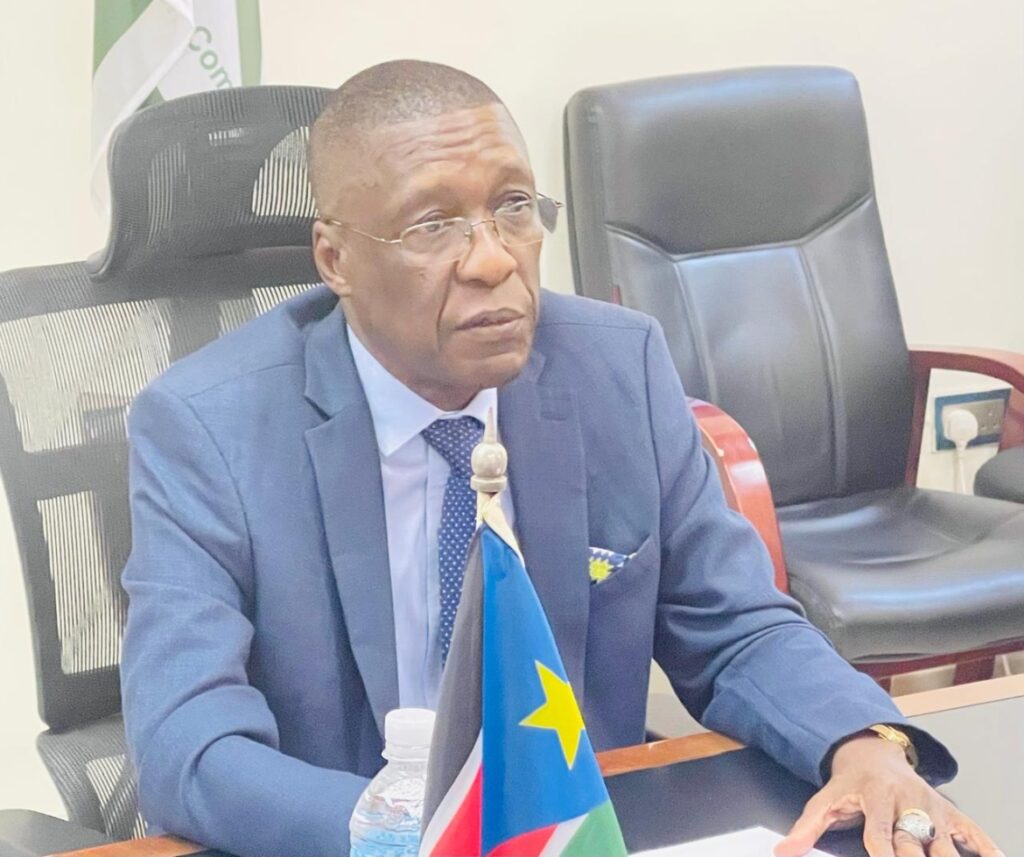The implementation of the key provisions of the South Sudan Revitalized Peace Agreement has largely stalled, increasing the risk of renewed conflict, a report has said.
According to the Quarterly Report of Reconstituted Joint Monitoring and Evaluation Commission (RJMEC), released Thursday, the general political and security situation continues to deteriorate.
“The general political and security situation in the Republic of South Sudan continued to deteriorate, with the Permanent Ceasefire severely compromised by repeated clashes between the South Sudan People’s Defense Forces (SSPDF) and the Sudan People’s Liberation Army–In Opposition (SPLA-IO), along with their allied forces,” reads the report covering the 2nd quarter of the year from April 1 to June 30.
It singles out the repeated clashes between the South Sudan People’s Defense Forces (SSPDF) and the Sudan People’s Liberation Army–In Opposition (SPLA-IO), along with their allied forces, as the biggest threat to the implementation of the Revitalized Agreement on the Resolution of the Conflict in the Republic of South Sudan (R-ARCSS).
The report, prepared pursuant to Article 7.9 of the R-ARCSS, says heightened political tension persisted during the reporting period, including the continued house arrest of the First Vice President (FVP), Dr. Riek Machar, and Chairperson of SPLM/A-IO, and detention of other high-ranking SPLM/A-IO members.
“This only serves to deepen mistrust among key parties to the R-ARCSS and undermine confidence of the people of South Sudan, the region and international community on the commitment of the parties to the implementation of the Agreement in letter and spirit,” says the report.
“Additionally, unilateral dismissals and appointments undertaken without the requisite consultations and/or consensus among the peace partners constituted clear breaches of the letter and spirit of the responsibility-sharing arrangements under the governance chapter of the R-ARCSS, further eroding trust and undermining its implementation,” it adds.
The 16-page report says that despite extensive high-level diplomatic efforts by regional and international actors, no significant breakthrough has been achieved in resolving the political and security impasse in the country.
“Further, the absence of direct dialogue between the leadership of the Parties, particularly between the Incumbent Transitional Government of National Unity (ITGoNU) and the SPLM/A-IO, reflects deeper underlying mistrust and unresolved grievances that continue to hinder effective implementation of the R-ARCSS,” the report notes.
Nonetheless, RJMEC welcomes continued diplomatic interventions as important gestures of political goodwill, aimed at encouraging the country’s leaders to prioritize the aspirations of ordinary citizens for peace, dignity, and security to be at the core of all political discussions and interventions.
Among its recommendations, RJMEC urges the transitional government to resolve the issues surrounding the house arrest of Dr Machar and other SPLM/A-IO leaders currently in detention, pursuant to the Communiqué of the 1283rd Meeting of the AUPSC, and ensure the functionality of all the Agreement implementation institutions and mechanisms, especially the Transitional Security Mechanisms.
“In order to kickstart this process, there must be a restoration of trust, which necessarily involves releasing of the SPLM/A-IO detainees and restoring full and inclusive participation of all parties in the various Agreement Institutions and Mechanisms,” it says.




